Date: 15 June 2009
Test results indicate that SPD-Smart windows have extraordinary solar heat rejection and control capabilities.The tests were conducted by DSET Laboratories, a division of Atlas Material Testing Technology, in accordance with ASTM and ASHRAE testing and calculation protocols.
"The energy efficiency of window products is of great importance in today's world," commented Joseph M. Harary, President and CEO of Research Frontiers. "SPD-Smart products instantly give users the ability to control the amount of light, glare and heat entering a home, building, aircraft, boat or automobile. When compared to published data about the energy efficiency and other performance characteristics of all other types of windows offered for the architectural market - including other smart window technologies - we find none comparable to SPD-Smart windows."
The United States Department of Energy estimates that tintable smart windows can save building operators up to 40% on their energy bills, reduce the size of HVAC systems by as much as 25%, and reduce building operating costs by up to 20%. To maximize these dramatic savings, a smart window must be able to both reject and variably control the transmission of solar heat as well as visible light.
The testing of one type of SPD-Smart window indicates broad range in the amount of solar energy that can be instantly regulated. This type of window can reject 87% of the sun抯 heat or allow 57% of it to be transmitted. The range of heat control is the largest known of any window ever offered. Such performance can reduce cooling and heating costs particularly in northern climates by rejecting heat in the summer and transmitting heat in the winter. This window also has a very wide range of visible light transmission with a contrast ratio (the ratio of the darkest to the lightest states of the variable tint) exceeding 100:1.
In warmer regions, maximizing heat rejection lowers cooling costs. Test results on another type of SPD-Smart window, configured for these sunnier regions, indicate that up to 94% of heat from the sun can be blocked from entering, a level of efficiency unequalled by any other window offered today.
At the Research Frontiers Annual Meeting, Joseph M. Harary gave a presentation on windows and energy efficiency, and provided highlights of the independent test results. This presentation is available at: www.smartglass.com/upload/RFI_Presentation.pdf
In addition to energy savings due to heat rejection and control, SPD-Smart windows offer additional energy saving capabilities for homeowners and building operators. One such area is "daylight harvesting" which involves the introduction of natural light to a building's interior, thereby reducing the energy used for artificial lighting. Buildings account for an estimated 40% of the U.S.'s total energy consumption and represent important targets for substantial gains in energy efficiency. According to the New Buildings Institute, efficient daylight harvesting can lead to annual savings on lighting energy of 35%-60%. With approximately 14% of the energy used in the U.S. going towards interior lighting, this translates into estimated annual savings on energy used for interior illumination of between $20-$35 billion in the U.S. alone. SPD-Smart windows offer superior daylight harvesting potential as compared to conventional window systems because of their variable light-control properties that can minimize artificial lighting needs and thus energy use. Gregory M. Sottile, Ph.D., Director of Market Development for Research Frontiers, and John Petraglia, CEO and President of licensee SPD Control Systems Corporation, jointly gave a presentation about the need for, and design of, daylight harvesting systems using SPD-SmartGlass which is available at: www.smartglass.com/upload/Daylight_Harvesting.pdf.
Also presenting at the Annual Meeting were several other licensees of Research Frontiers. Jeff Besse, President of LTI SmartGlass, Inc., provided an overview of the company's expansion, including the construction of a new 90,000 square foot production facility and showroom in Pittsfield, Massachusetts. This new plant increases LTI's production capacity to more than 23,000 square feet of glass per week. Mr. Besse talked about the collaborative work LTI is doing with other Research Frontiers licensees and LTI's ability to supply them with large volumes of laminated SPD-SmartGlass. Mr. Besse's presentation is available at: www.smartglass.com/upload/LTI_Presentation.pdf.
Tony Pirro, Vice President of DIC International (USA), Inc., presented an overview of his company's SPD emulsion production, supply and marketing programs. Currently DIC is supplying SPD emulsion to another Research Frontiers licensee, Isoclima S.p.A. This emulsion is coated into an SPD light-control film by Isoclima, which is now offering SPD-Smart end-products to various industries. Mr. Pirro also noted a recent expansion - DIC International (USA) has begun to market Isoclima SPD-Smart CromaLite glass and polycarbonate panels in the U.S.
Steve Abadi, Chairman and CEO of licensee Innovative Glass Corp., discussed a number of projects for its SPD-SmartGlass for interior and exterior architectural applications, and noted two significant developments related to these projects: the successful fabrication of large windows measuring 6 feet wide by 9 feet tall, and also the ability to retrofit existing windows to make them SPD-Smart. Innovative Glass expects details of these projects to be announced by them or their customers.
Mr. Harary also announced a new collaborative marketing program, with licensees InspecTech Aero Service and Hitachi Chemical, to expand market penetration in the SPD aerospace application. Aircraft manufacturer Hawker Beechcraft Corporation is now selling InspecTech's SPD-Smart I-Shades, the world's most advanced light-control aircraft cabin window shades, for all models of its King Air aircraft, of which there are 6,200 flying today. To support this effort, Mr. Harary demonstrated the I-Shade (which is also currently being used in the A380 aircraft recently delivered by Airbus to airline customer Qantas Airlines) and previewed the marketing program's first magazine advertisement for King Air I-Shades, scheduled for July.
Visitors at the Research Frontiers Annual Meeting were also able to see SPD-SmartGlass powered by photovoltaics, and experience first-hand how SPD-SmartGlass is used in automotive applications by sitting in a Cadillac CTS test vehicle equipped with two large SPD-Smart sunroofs and multiple SPD-Smart sunvisors that block glare and regulate the amount of heat and light coming into the vehicle. Guests were then invited back to Research Frontiers' new SPD-SmartGlass Design Center and Interactive Exhibit to experience large SPD-Smart architectural windows.
About SPD Technology and Research Frontiers Inc.
Research Frontiers Inc. (Nasdaq: REFR) develops and licenses suspended particle device (SPD) technology used in VaryFast(TM) SPD-Smart(TM) controllable glass and plastic products. Benefits include dynamic control of light, glare and heat passing through many types of glazings, noise reduction, greater security due to both privacy and structural integrity, and the protection of interiors and occupants from heat and harmful ultraviolet radiation. SPD technology, made possible by a flexible light-control film invented and patented by Research Frontiers, allows the user to instantly, precisely and uniformly control the shading of glass or plastic, either manually or automatically. This film can be used to transform into "smart" products a variety of products used every day in homes, buildings, cars, aircraft, boats, trains and motorcoaches.
Current product applications for SPD technology include: SPD-Smart windows, sunshades, skylights and interior partitions for homes and buildings; automotive windows, sunroofs, roof systems, sunvisors and sunshades; and aircraft and marine windows and window shades. Potential future applications include: eyewear products including sunglasses, ski goggle and motorcycle helmets, mirrors and flat panel displays for electronic products.
SPD-Smart film technology was awarded a "Best of What抯 New Award" from Popular Science magazine for home technology, received the 2007 North American Frost & Sullivan Award for Excellence in Technology for glass, and was also recognized as one of the top technologies by the Society of Automotive Engineers' Aerospace Engineering magazine. SPD technology is covered by over 500 patents and patent applications held by Research Frontiers worldwide. Currently 35 companies are licensed to use Research Frontiers' patented SPD light-control technology in emulsions, films, or end-products. Further information about SPD-Smart technology, Research Frontiers and its licensees can be found at www.SmartGlass.com.
Note: From time to time Research Frontiers may issue forward-looking statements which involve risks and uncertainties. This press release contains forward-looking statements. Actual results could differ and are not guaranteed. Any forward-looking statements should be considered accordingly. SPD-Smart(TM), SPD-SmartGlass(TM), SmartGlass(TM), VaryFast(TM), Speed Matters(TM), VaryFast(TM), Powered by SPD(TM), SPD Clean Technology(TM), SPD On-Board(TM), Visit SmartGlass.com - to change your view of the world(TM) and The View of the Future - Everywhere You Look(TM) are trademarks of Research Frontiers Inc.

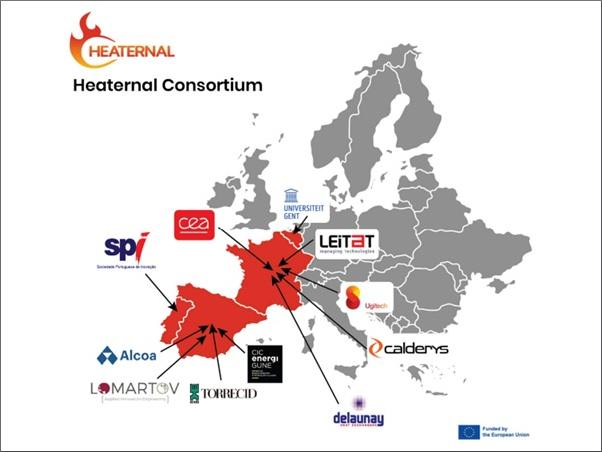

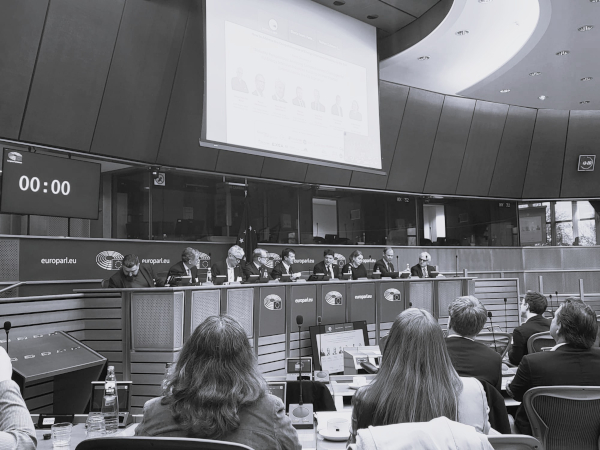
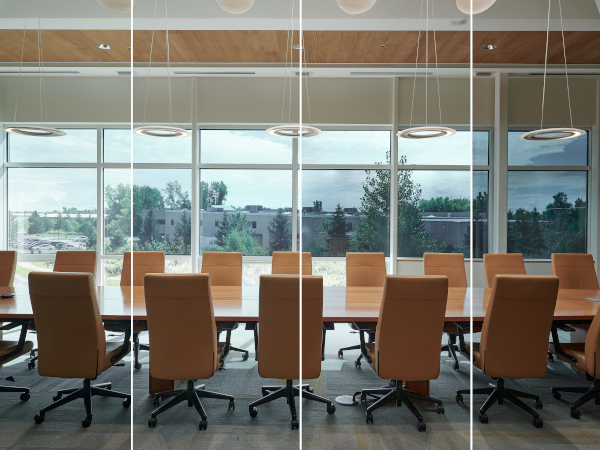
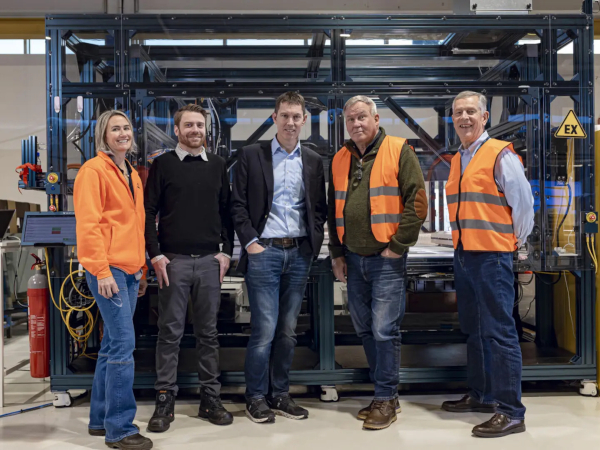


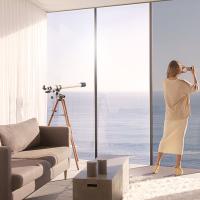
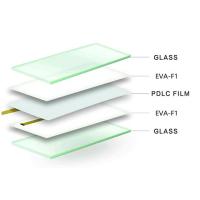


Add new comment